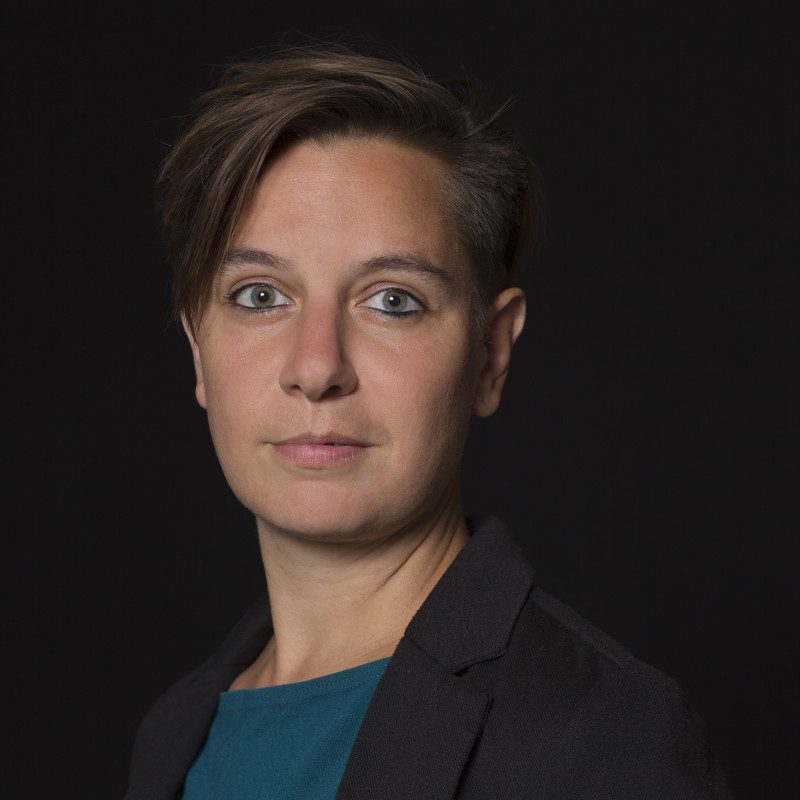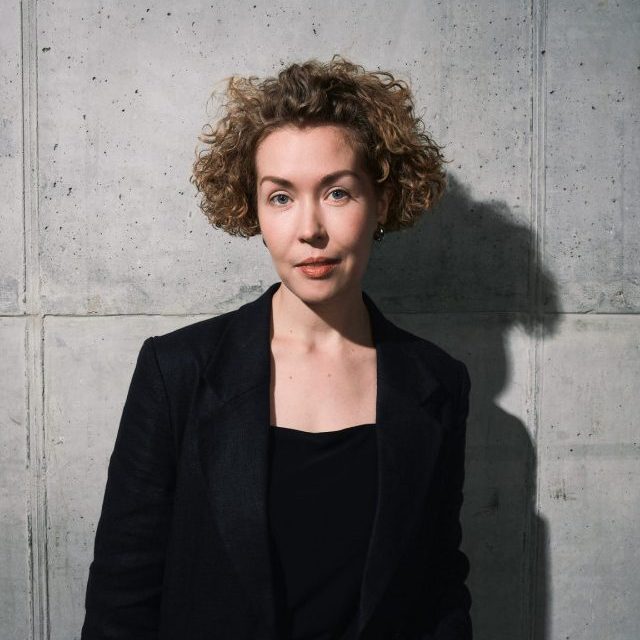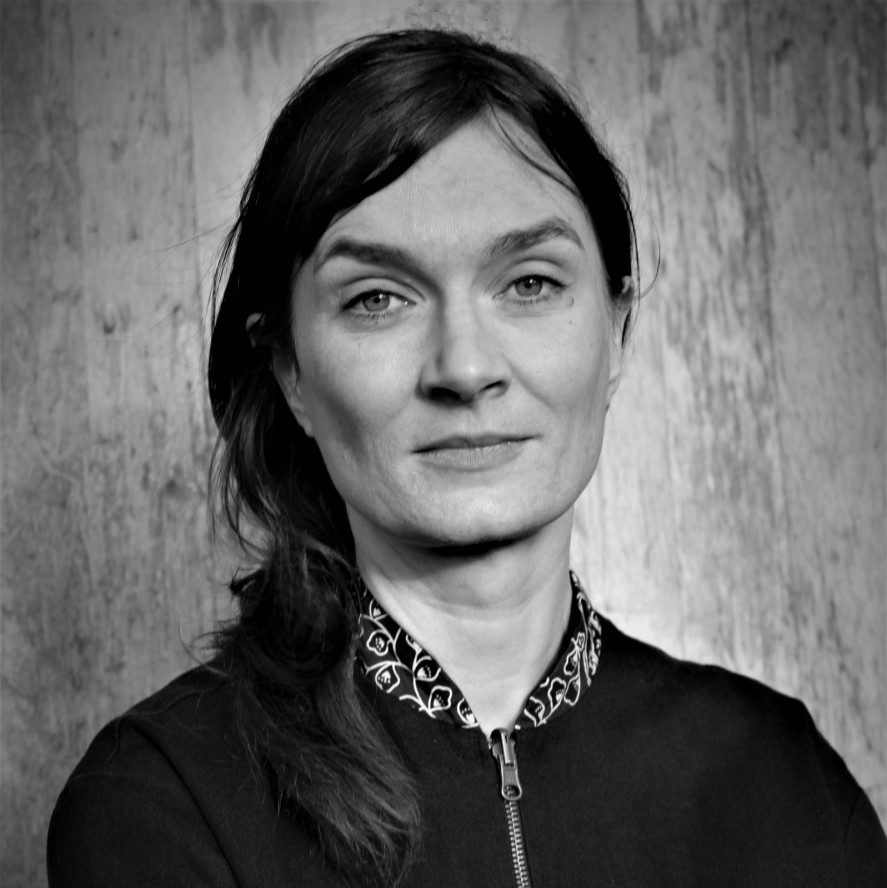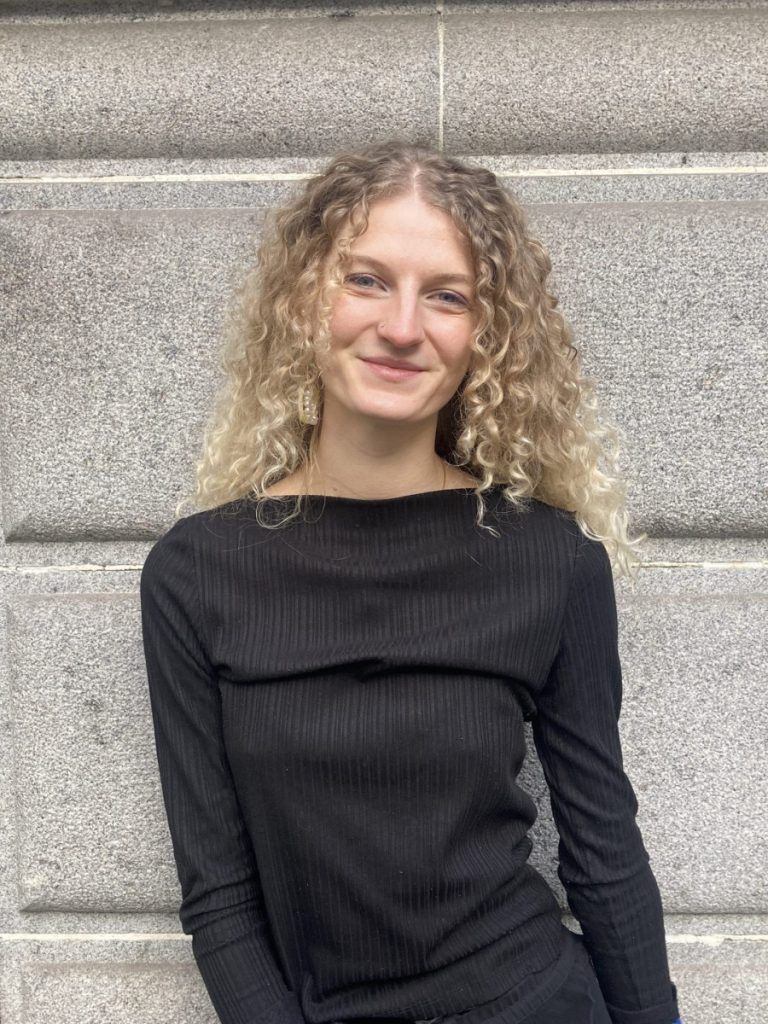Univ.-Prof. Dr. Silke Felber

Principal Investigator
Silke’s academic work transcends disciplinary boundaries, integrating Theatre, Cultural, Media, and Literary Studies. She deeply engages with the aesthetics and theories of performing arts; the mediatization and gendering of political stagings; and the role of sensory knowledge, with a particular focus on the ecological and (de-)colonial implications of smell in artistic and military contexts. With her second book Travelling Gestures: Elfriede Jelineks Theater der (Tragödien-) Durchquerung (mdwpress 2023), Silke earned her habilitation in Theatre and Cultural Studies at the University of Vienna. She has published peer-reviewed scholarship examining, among other things, the politics and aesthetics of affection in new burial practices involving the accelerated composting of human remains; the cultural and historical implications of smell in the context of assembly; and the use of drag techniques in efforts to prevent the extinction of the whooping crane bird species. Her research was awarded, amongst others, with the ERC Consolidator Grant (2023), the Mercator Fellowship (2023), and the awards Elise Richter (2018) and Hertha Firnberg (2015) from the Austrian Science Fund (FWF).
Fellowships and teaching appointments have taken Silke to the University of Oxford, Ghent University, the University of Bern, the University of Graz, the University of Music and Performing Arts Vienna, and the University of Vienna. In 2024, she served as Visiting Professor for Theatre Studies at Freie Universität Berlin before being appointed University Professor for the History of Knowledge at the University of Arts Linz. Together with Johanna Zorn, she co-heads the working group on dramaturgy within the GTW. She is permanent editor of the international, peer-reviewed open-access journal ephemer – Journal for Performance and Theater Research (together with David Krych).
“Since I can remember, I have feverishly sought out situations and actors capable of making my senses reel. I long for moments when “those precious, experienced eyes” (to borrow Nabokov’s phrase) can no longer be trusted—when the intricate dance of my body’s tacit knowledge falters under the sudden intrusion of reason. I thirst for the fleeting illusion of movement conjured by a passing train, as though I myself were in motion; for objects whose misjudged weight sends my torso lurching upward in eerie haste. But what happens when the nose, too, is drawn into these moments of faltering? And might such stumblings unsettle the ingrained habits that our bodies, through years of socialization, have so deeply internalized?“
Dr. Freda Fiala

Postdoctoral Researcher
Freda Fiala is a cultural researcher whose work explores the entangled relations between Central Europe and East Asia. With an academic background in Theatre and Performance Studies as well as Chinese Studies, Freda has spent several years living and studying in East Asia, including extended stays in Hong Kong and Taiwan. During this time, her interests turned increasingly toward the role of cultural institutions and curatorial practices in narrating histories, shaping publics, and negotiating politics of representation. Her P.h.D., funded by a DOC grant from the Austrian Academy of Sciences, explored contemporary performance in Taiwan through its institutional networks, curatorial strategies, and cultural-political implications. The study is forthcoming in 2026 as an English-language monograph and offers a sustained analysis of performance as a site of cultural negotiation and informal cultural diplomacy.
Her current research expands this work into the field of museum studies, with a focus on sensory regimes, infrastructure, and the politics of display. Within OLFAC, she investigates olfaction as a curatorial and epistemic tool, tracing how smell operates across transregional knowledge histories, archives and institutionalcontexts.
Freda has been a guest lecturer at the Academy of Fine Arts and the University of Vienna and a theory mentor at the P.A.R.T.S. School for Contemporary Dance in Brussels. She has co-curated several symposia, among them ”Performance Besides Itself. Infra- and Parastructures of a Contemporary Liveness” (with Kunstraum Niederoesterreich) and ”Ambivalent Orders” as well as ”Curatorial Tipping Points” (with the Austrian Association of Curators). In 2025, Freda was awarded the Young Scholars Award of the European Association of Taiwan Studies (EATS) and the inaugural Doc School Award of the University of Vienna (Faculty of Philological and Cultural Studies).
”In my mother tongue, German, words can be fused endlessly into ultra-descriptors, strange linguistic creatures of astonishing length. This practice came back to me as I considered titles for arts criticism—what if a title were just one long word? A single breath in, a single breath out, a bite-sized distillation of meaning. It struck me how this linguistic stretch mirrors the uniformity of objects like incense sticks, chopsticks, or cutlery, each standardized to a certain length. Could a German one-word title or even poem align with this measure, compact yet expansive, offering a tactile sense of completion, as if language itself were shaped to fit the body and the rhythms of thought, attuned to the senses?”
Dr. Julia Ostwald

Postdoctoral Researcher
Julia Ostwald holds a doctorate in dance studies and works at the intersections of dance theory, performance studies, and cultural history. Her research focuses on historical and contemporary entanglements of aesthetics, sensual perceptions, and (body-)politics in the context of dance, movement, and choreography. A current emphasis lies on stagings of smell, air, and moving bodies from early modernity to the present and related environmental questions.
She was a senior scientist in gender studies at mdw-University for Music and Performing Arts Vienna. Before, she worked as a project assistant at the doctorate school gender_transcultural at Salzburg University, from where she also received her doctorate in dance studies (2021). She is the author of the book Choreophonien. Konstellationen von Stimme und Körper im Tanz der Moderne und der Gegenwart(2024) on the micropolitics of choreographing voice and body.
Julia was a guest lecturer at the Beijing Dance Academy, the Department of Theater, Film, and Media Studies at Vienna University, and the University of Applied Arts Vienna. She has worked as a guest editor for the Flemish Centre of Expertise for the Cultural Heritage of Performing Arts and as a co-editor for the Vienna-based online journal corpusweb.net. She regularly collaborates on projects on the threshold between practice and theory such with institutions such as TQW Tanzquartier Wien, Festwochen Campus or Szene Salzburg. Holding a BA in Dance Teaching (Tilburg, NL), Julia also has extensive experience as a community dance artist.
“I grew up in the GDR, and in my memory, the olfactory was one of the most fundamental categories that separated the experience of ‘East’ and ‘West’: The acrid smell of Trabants and coal on the one hand contrasted with the promising fragrance of new things spilling out of my relatives’ care packages. Recently, I rediscovered this scent when I opened the window of my new apartment, which is located above the ventilation of a clothing store. The aroma of the ‘West’ stood outside my window like a thin invisible wall, staging a strangely out-of-place scene of consumerist desires.”
Antonia Karácsonyi LL.B.

Project Management
Antonia Karácsonyi is currently studying Cultural Studies at the University of Arts in Linz. She has an interdisciplinary background, holding a Bachelor’s degree in Business Law with a focus on Sustainability Management, as well as training in Theater, Film, and Media Studies. Her diverse academic foundation allows her to approach cultural topics from a variety of perspectives, combining insights from law, media, and sustainability.
As project manager for OLFAC, she supports the researchers in matters of event organisation, administration and communication.
